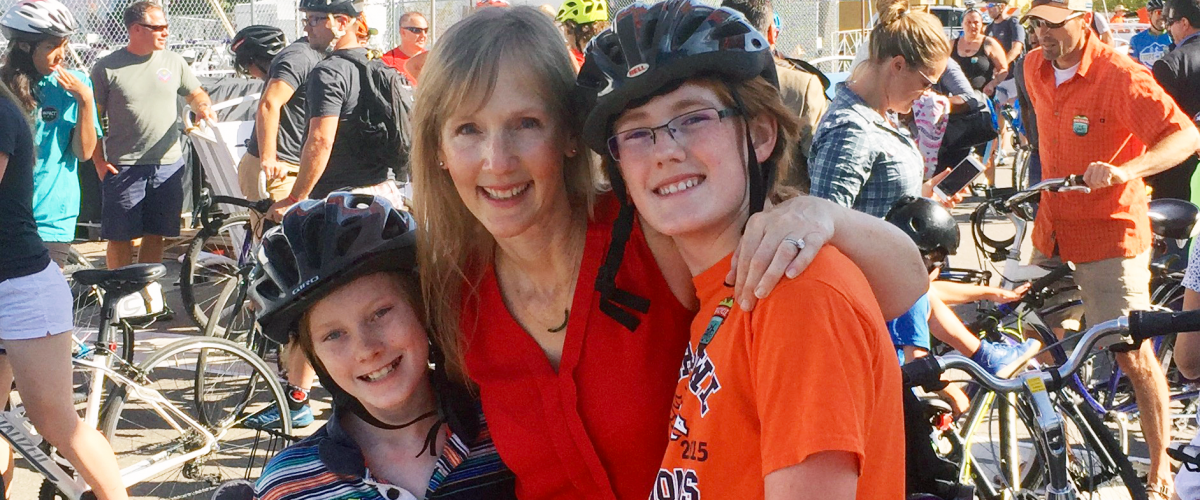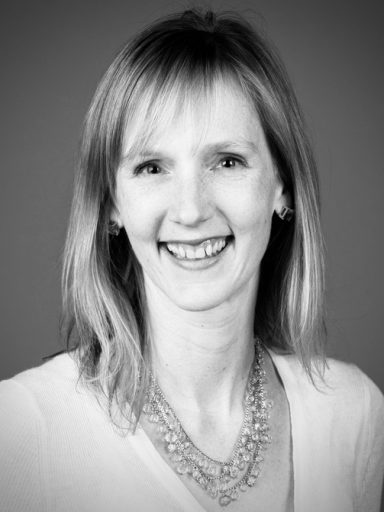
DaVita Group Vice President Anne Bailey, MS Information Systems ’00, looked back on her CU Denver Business School experience. She shared her career journey from struggling to manage a full-time job while attending graduate school to managing over 750 people at one of the largest kidney care providers in the United States.

What initially led to your decision to attend CU Denver Business School?
Part of it was opportunistic. I was working in Denver during the dot-com boom and my company offered to pay for furthering my education. I definitely wanted to take advantage of that. So, I scanned for schools where I thought I could learn the most and would also work with my schedule of working full-time. CU Denver offered a combination of evening classes, a super convenient campus and online options, plus excellent professors and classes that fit all of my criteria perfectly.
Why did you choose an Information Systems degree?
I was working in Human Resources, but for a company [Oracle] that was really tech-focused. I thought getting my Master’s in Information Systems would be a great opportunity to understand more of the world around me, and I think it has served me well. Every organization I’ve helped lead has had some sort of technology component, so having a solid understanding of tech has given me an incredible foundation.
How would you describe your experience as a student at CU Denver Business School?
I took both evening and online classes and I found those to be high-quality and so convenient with my schedule. I liked that the professors were very pragmatic, so it didn’t feel like I was getting an education that was all academia; I felt like it was going to be really useful.
I also found that my fellow students were a lot like me, balancing a full-time career with graduate school, which was really wonderful. Because I felt surrounded by real peers, the team-based projects were an ideal aspect of pretty much every class. I discovered that working with other professionals in class made for incredibly efficient and focused projects, which was a very different experience than when I was an undergrad.
What other differences were there between your undergraduate and graduate studies?
As an undergrad who maybe doesn’t know what it’s like to work full-time, you’re probably not quite as efficient in your work. As a graduate student, particularly one that is working full-time, you really hone your 80/20 skills and your efficiency skills. All of us were doing that at the same time, having a lot of fun exploring how to make it all work.
It helped me in my career later on to be significantly more efficient and be better able to focus on things that were really important.
Can you tell us more about your position at DaVita and what it entails?
In a nutshell, I focus on helping our patients stay working and insured. I have about 750 DaVita teammates that work for me in different capacities. It is my teams’ job to help dialysis patients understand and cope with their diagnosis and treatment, and how they can continue working and living fulfilling, healthy lives.
What led you to your current position?
DaVita was one of my clients as a consultant. I really thought I was going to be a consultant forever, but then DaVita struck me as totally different. They have huge hearts, a passion for giving life to our patients, and are also really fast-paced. I’d never seen that combination of good, fulfilling work with speed and action before. That is really rare and was something that just drew me in.
What do you enjoy most about your role at DaVita?
I enjoy the opportunity to give hope to our patients, many of whom are very, very sick, scared, and feeling alone. Our team gives a lot of direct support to those patients and families, and that offers me a real sense of fulfillment that I didn’t even know I was missing until I was here.
Service activity is also a large part of everyone’s job at DaVita and doing community service with real results is not only incredibly fulfilling but also makes for a very close and bonded team. I feel very fortunate that I get to do community work while I’m in my normal workday.
What are some challenges you are facing in your industry or role right now?
One of the challenges is working in a highly regulated environment like healthcare. We must be incredibly careful about being compliant and it can be tricky to navigate.
What advice might you have for our students?
Begin with the end in mind. Think about where you are going. It doesn’t have to be five or ten years into the future. It can be just a couple of years. If you say something like, “I want an analytical role in a small to medium-sized company,” and you can anchor that in your mind, it can keep you from getting off-track or feeling scattered.
Also, here is an interviewing tip: the two most important things you can bring with you to an interview are energy and structure. Right off the bat, walk into the room projecting confidence with a big smile and big energy. Then combine that with structure. Listen carefully to the question, take a moment, and then think of the answer with supporting points. Those two things together are a winning combination.
What piece of advice has helped you the most professionally?
Once I was talking to a friend about some negative feedback I’d gotten, and he told me a trick to put any feedback you receive into one of three categories:
- “I knew that I needed to work on that. Time to work harder.” This is the type of feedback that really resonates with you that you know is right.
- “Whoa, I hadn’t thought of that, but I think it feels right.” This type of feedback might have caught you off guard but feels like it is coming from a good place and you should take action.
- “Nope.” This is the type of feedback that is either something that doesn’t matter or is something about you personally that you can’t change or simply doesn’t feel right.
For example, once I got some feedback that I needed to be more formal in my client interactions. It caught me off guard and honestly felt very inauthentic to me, and so I just decided to throw it out and move on. I find this exercise to be quite freeing.


